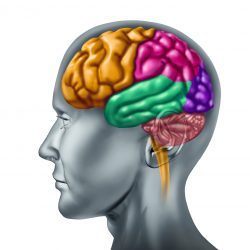“Don’t cry because it’s over, smile because it happened.” Dr. Seuss
“May you live every day of your life.” Jonathan Swift
Pros and cons to donating your body to medical science: Likely you’ve heard about it, maybe you’ve even thought about it, donating your body to medical science? It is a generous and altruistic decision that directly impacts medical schools and/or research foundations. First, medical schools teach human anatomy and dissection is a crucial part of medical student education. Second, surgery residents need to refine/learn their surgical techniques using donated bodies. Third, scientists are advancing our understanding of many different diseases by studying donated organs. In all three cases, bodies and organs donated by individuals provide an essential educational/research scaffolding. After our anatomy sessions are completed, my medical school has a memorial service (we also invite the family members) to thank and celebrate the lives of those who donated their bodies; it is an incredibly heart-felt and uplifting event.
Furthermore, the medical school (or donor program) accepting the body takes responsibility for handling the eventual cremation and burial tasks. Typically, families are given the option of having cremated remains buried at the school site or returned to the family; after the school is finished using the body for teaching purposes. The down-side is this may take up to a year before the cremated remains are available. Most medical schools accept body donations but the donor normally has already made prior arrangements, and the body needs to be immediately available following the donors death. An important fact to remember is that most medical schools would not accept bodies whose organs have already been donated for use in other patients. Therefore, if donating your organs is important to you, donating your body to medical science may not be a viable option. Regardless of your decision, donating either your organs or your body is such a noble decision.
“Death ends a life, not a relationship.” Mitch Albom, Tuesdays with Morrie
Donating your brain to science: The idea for this blog topic evolved after I read the following blog: “Donating your brain to science” (http://blog.wellcome.ac.uk/2015/07/31/image-of-the-week-donating-your-brain-to-science/ ). Many people with Parkinson’s, Alzheimer’s, Multiple Sclerosis and other neurological disorders, are donating their brains to medical science researchers/foundations. The goal is simple, cure these diseases. By studying these donated brains, these research teams are learning much about these various diseases focused in the brain.
As a long-time scientist, I have studied various blood coagulation disorders in human organs. My lab group and I always appreciated those who decided to make such donations. Yes, it is always a solemn process to study these diseased tissues. However, we are very thankful for these donations because they are most helpful in advancing the understanding of disease processes.
Below is a schematic showing the areas of the brain and physiological functions (left panel) and a coronal slice of a human brain during dissection (right panel).
 “The fear of death follows from the fear of life. A man who lives fully is prepared to die at any time.” Mark Twain
“The fear of death follows from the fear of life. A man who lives fully is prepared to die at any time.” Mark Twain
The generosity of donating your body to medical science: The goal of this blog is not to convince you to donate your body to medical science. The goal is simply to describe the donation process. I give examples to how those who do generously donate their bodies help medical education and advance our understanding of human diseases. Clearly, this is a very personal decision that requires thorough conversation with your loved-ones/family members and other people important to you.
“I wish it need not have happened in my time,” said Frodo.
So do I,” said Gandalf, “and so do all who live to see such times. But that is not for them to decide. All we have to decide is what to do with the time that is given us.” J.R.R. Tolkien, The Fellowship of the Ring


